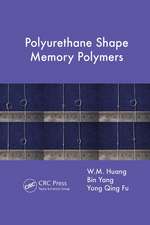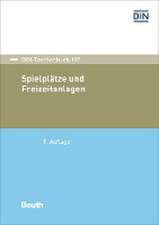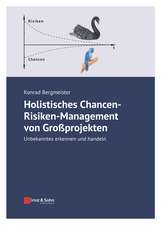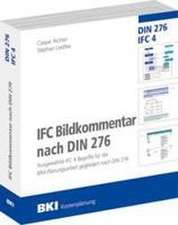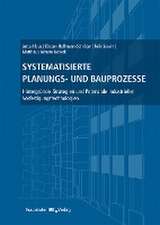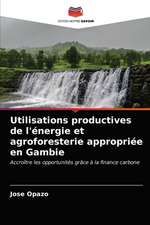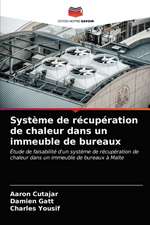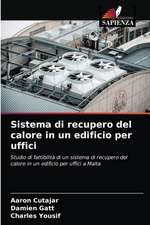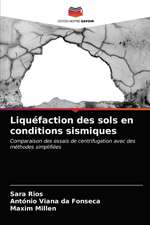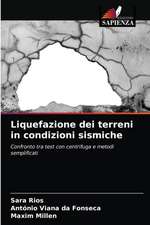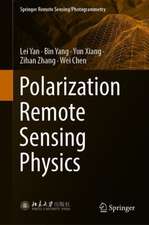Personal Comfort Systems for Improving Indoor Thermal Comfort and Air Quality: Indoor Environment and Sustainable Building
Editat de Faming Wang, Bin Yang, Qihong Deng, Maohui Luoen Limba Engleză Hardback – iun 2023
| Toate formatele și edițiile | Preț | Express |
|---|---|---|
| Paperback (1) | 552.60 lei 38-44 zile | |
| Springer Nature Singapore – 2 iun 2024 | 552.60 lei 38-44 zile | |
| Hardback (1) | 895.27 lei 3-5 săpt. | |
| Springer Nature Singapore – iun 2023 | 895.27 lei 3-5 săpt. |
Preț: 895.27 lei
Preț vechi: 1091.80 lei
-18% Nou
Puncte Express: 1343
Preț estimativ în valută:
171.33€ • 178.21$ • 141.44£
171.33€ • 178.21$ • 141.44£
Carte disponibilă
Livrare economică 24 martie-07 aprilie
Preluare comenzi: 021 569.72.76
Specificații
ISBN-13: 9789819907175
ISBN-10: 9819907179
Pagini: 280
Ilustrații: XIII, 280 p. 104 illus., 82 illus. in color.
Dimensiuni: 155 x 235 mm
Greutate: 0.57 kg
Ediția:2023
Editura: Springer Nature Singapore
Colecția Springer
Seria Indoor Environment and Sustainable Building
Locul publicării:Singapore, Singapore
ISBN-10: 9819907179
Pagini: 280
Ilustrații: XIII, 280 p. 104 illus., 82 illus. in color.
Dimensiuni: 155 x 235 mm
Greutate: 0.57 kg
Ediția:2023
Editura: Springer Nature Singapore
Colecția Springer
Seria Indoor Environment and Sustainable Building
Locul publicării:Singapore, Singapore
Cuprins
Thermal Comfort.- Adaptive Thermal Comfort.- Thermal Comfort in Sleeping Environments.- Human Thermal Comfort Modeling.- Task/ambient Conditioning Systems.- Personalized Ventilation System.- Electric Fans.- Personal Comfort Systems.- Thermoelectric System for Personal Cooling and Warming.- Material Development for Personal Thermal Management.- Wearable Personal Thermal Management Systems.- Concluding Remarks.
Notă biografică
Faming Wang received his Lic. Phil. and Ph.D. degrees in Working Environment from Lund University, Sweden. After his PhD training, he joined EMPA (Switzerland) and University of Alberta (Canada) as Marie Curie Fellow (postdoc) and Killam Fellow (postdoc), respectively. In October 2013, Dr. Wang was appointed to a faculty position as Distinguished Full Professor at Soochow University, where he established Laboratory for Clothing Physiology and Ergonomics (LCPE), a research group that is focused on the study of the human body-clothing-environment system. In Aug. 2016, Dr. Wang joined The Hong Kong Polytechnic University as an assistant professor. Recently Dr. Wang joined the Department of Biosystems of KU Leuven (Leuven, Belgium) as Associate Professor. Prof. Wang’s research interests are focused on built environment, indoor thermal comfort, air quality, human thermoregulatory system modeling, and occupational safety and health. To date, He has published extensively with over 260 journal papers, books/chapters, technical reports and patents. His publications have been cited over 3200 times and this gives him an h-index of 32 in Google Scholar (as of Nov. 2022).
Bin Yang got his joint PhD from Technical University of Denmark and National University of Singapore. He got his bachelor and master degree from Tianjin University (China). He is a researcher with 20 years research experience in thermal comfort, indoor air quality, building energy efficiency and HVAC. He has worked in different countries with world famous research groups such as Technical University of Denmark and University of California Berkeley. He was a tenured professor in Umeå University, Sweden. Now he is a chair professor and school dean in School of Energy and Safety Engineering, Tianjin Chengjian University, China. He has obtained several awards such as REHVA Young Scientist Award, ASHRAE Ralph Nevins Physiology and Human Environment Award, ASHRAE GraduateGrant-in-Aid Award, Chinese Government Award for Outstanding Self-financed Students Abroad, and so forth. He has published more than 100 papers in international journals with h-index 23. He is associate editors and editorial board members for several international journals. His outstanding research achievements were reported by Xinhua News Agency and China National Radio in 2021.
Qihong Deng obtained his PhD degree in civil engineering from Hunan University in 2003, is now a chair professor in Zhengzhou University School of Public Health and vice president for the International Society of Indoor Air Quality and Climate (ISIAQ). He has mainly focused on the health risk of air pollution and global warming, with the objectives to design comfortable and healthy buildings/cities. He is associate editors and editorial board members for more than 10 international journals, including Environment International, BMC Medicine, Building and Environment, Energy and Buildings, and Urban Climate. Dr. Deng is now the Fellows of the International Society of Indoor Air Quality and Climate (ISIAQ), New York Academy of Medicine (NYAM), Royal Society for Public Health (RSPH), and Royal Meteorological Society (RMetS). He has published more than 150 papers in international journals with h-index 39 and has been selected as the Most Cited Chinese Researchers since 2015 (Elsevier).
Maohui Luo is an assistant professor at Tongji University, Shanghai, China. Dr. Luo hold a PhD in architecture technology from Tsinghua University, China. He received his postdoctoral training at Center for Built Environment at University of California Berkeley. His research interests are sustainable building-energy technologies, currently including localized (wearable) comfort devices, indoor air movement, and radiant heating/cooling comfort. Dr. Luo also teaches R programming online to help students acquire data analyzing skills.
Bin Yang got his joint PhD from Technical University of Denmark and National University of Singapore. He got his bachelor and master degree from Tianjin University (China). He is a researcher with 20 years research experience in thermal comfort, indoor air quality, building energy efficiency and HVAC. He has worked in different countries with world famous research groups such as Technical University of Denmark and University of California Berkeley. He was a tenured professor in Umeå University, Sweden. Now he is a chair professor and school dean in School of Energy and Safety Engineering, Tianjin Chengjian University, China. He has obtained several awards such as REHVA Young Scientist Award, ASHRAE Ralph Nevins Physiology and Human Environment Award, ASHRAE GraduateGrant-in-Aid Award, Chinese Government Award for Outstanding Self-financed Students Abroad, and so forth. He has published more than 100 papers in international journals with h-index 23. He is associate editors and editorial board members for several international journals. His outstanding research achievements were reported by Xinhua News Agency and China National Radio in 2021.
Qihong Deng obtained his PhD degree in civil engineering from Hunan University in 2003, is now a chair professor in Zhengzhou University School of Public Health and vice president for the International Society of Indoor Air Quality and Climate (ISIAQ). He has mainly focused on the health risk of air pollution and global warming, with the objectives to design comfortable and healthy buildings/cities. He is associate editors and editorial board members for more than 10 international journals, including Environment International, BMC Medicine, Building and Environment, Energy and Buildings, and Urban Climate. Dr. Deng is now the Fellows of the International Society of Indoor Air Quality and Climate (ISIAQ), New York Academy of Medicine (NYAM), Royal Society for Public Health (RSPH), and Royal Meteorological Society (RMetS). He has published more than 150 papers in international journals with h-index 39 and has been selected as the Most Cited Chinese Researchers since 2015 (Elsevier).
Maohui Luo is an assistant professor at Tongji University, Shanghai, China. Dr. Luo hold a PhD in architecture technology from Tsinghua University, China. He received his postdoctoral training at Center for Built Environment at University of California Berkeley. His research interests are sustainable building-energy technologies, currently including localized (wearable) comfort devices, indoor air movement, and radiant heating/cooling comfort. Dr. Luo also teaches R programming online to help students acquire data analyzing skills.
Textul de pe ultima copertă
This book first describes fundamental knowledge on human thermal comfort, adaptive thermal comfort, thermal comfort in sleeping environments, modeling of human thermal comfort, and thermal comfort assessment using human trials. Next, it presents an in-depth review of concept progress and evaluation of various personal comfort system, summarizes important findings and feasible applications, current gaps as well as future research needs. The seven chapters included in this section are task/ambient conditioning systems, personalized ventilation systems, electric fans, personal comfort systems, thermoelectric systems, personal thermal management systems, and wearable personal thermal comfort systems. This book provides valuable guidance for personal comfort system design and further improvement on the personal comfort performance. It will be a valuable resource for academic researchers, engineers in industry, and government regulators in the field of sustainable buildings and built environment.
Caracteristici
The first comprehensive technical book on the overview of various personal comfort systems Combines physiology, psychology, and building/architecture experts from an interdisciplinary standpoint Provides valuable guidance on personal comfort system design and further performance improvement





